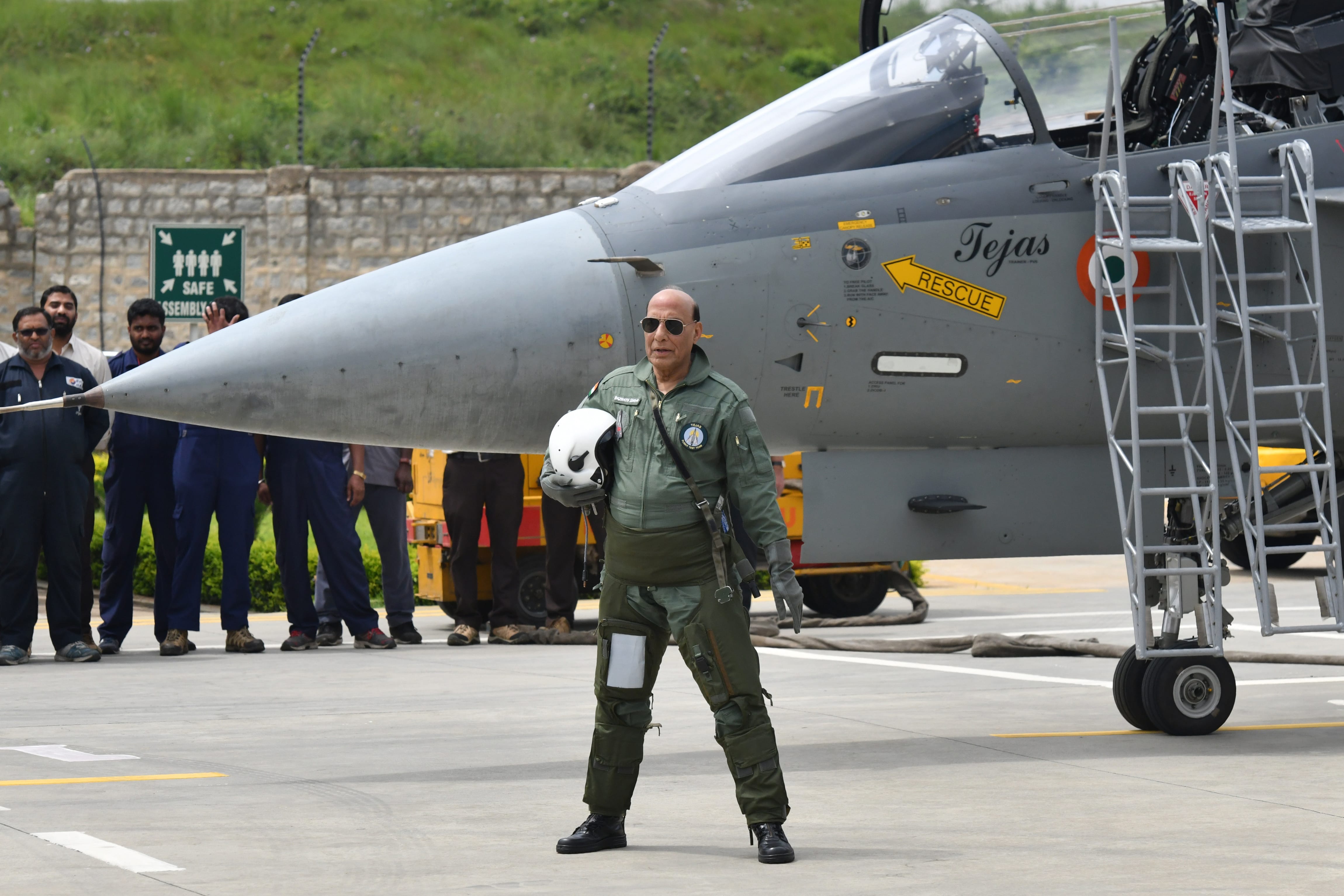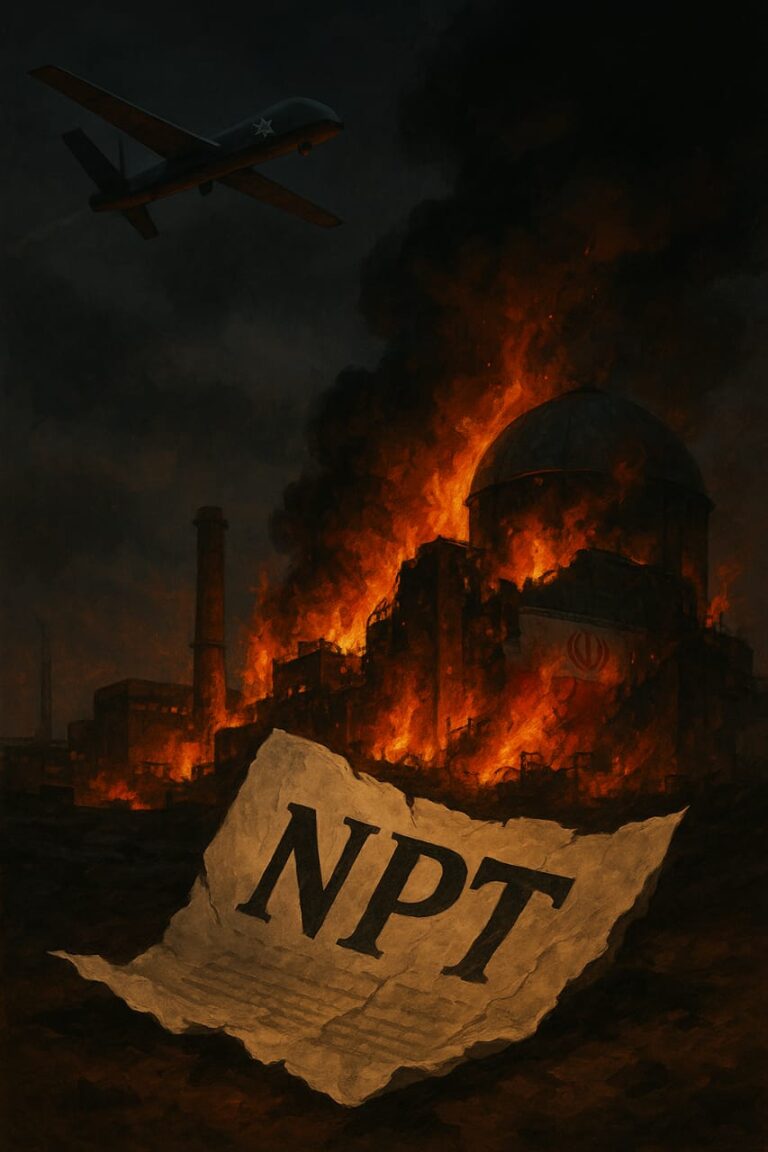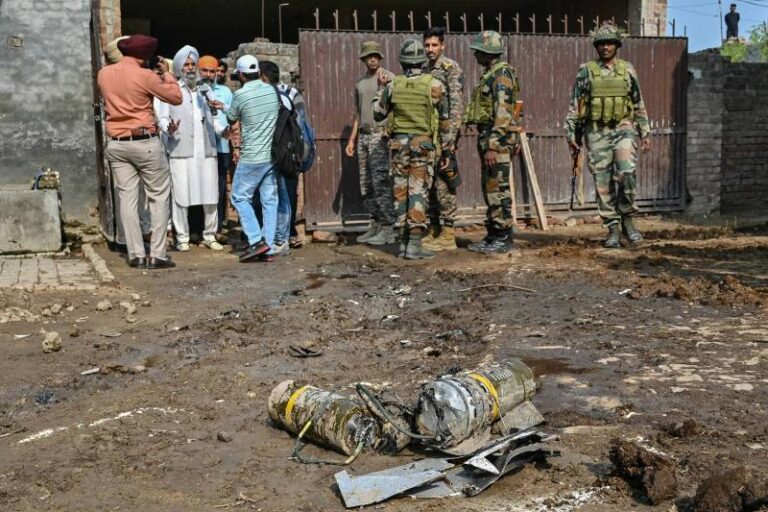
Source: AFP
Syed Ali Zia Jaffery
In the midst of mounting tensions between nuclear-armed rivals, India and Pakistan, apprehensions about deterrence stability on the Sub-Continent have risen. Days after the start of a new wave of crisis over Kashmir, India’s Defense Minister, Rajnath Singh drew attention by saying that India’s adherence to its No First Use(NFU) policy in the future will depend upon circumstances. This raised further doubts about the sacrosanctity of the NFU, a pronouncement that even-otherwise gained little traction in Pakistan’s strategic community. Continued dilution of the highly-touted holy grail of India’s nuclear posture has been a subject of great scholarly disquisition. Though Pakistan’s nuclear policy hardly takes into account India’s NFU declaration, further erosion of the principle will have implications for it and strategic stability in South Asia. This is primarily because of two concomitant reasons: tinkering with NFU is a Pakistan-centric recourse, and an evisceration of NFU will shift India’s focus from deterrence to war-fighting.
The Pakistan Bogey
New Delhi has long accused Pakistan of whipping up sub-conventional war against India under the nuclear overhang. India has asserted time and again that Pakistan’s nuclear bluff has enabled it to go scot-free despite allegedly fomenting terrorism inside Indian Occupied Kashmir and mainland India. This quandary had compelled India to find a band below the nuclear threshold to punish Pakistan, something that they did by coming up with a limited war doctrine dubbed Cold Start. However, for more than a decade, the Indian Army did not own the doctrine owing to problems of achieving all-important synergy. The implementation of the doctrine became a more difficult proposition after Pakistan came up with its response in shape of battlefield nuclear weapons.
Thus, according to New Delhi, Islamabad’s nuclear weapons continue to provide cover to its sub-conventional war against India. Some analysts attribute Pakistan’s purported brazenness to the fact that it does not fear a nuclear riposte. According to one of India’s ace strategic experts, P.R.Chari, India’s NFU frees up Pakistan for terrorism, limited war and even the deployment of TNWs.
The NFU has been linked to Pakistan’s free-riding at the lower ends of the conflict spectrum on quite a few occasions by senior Indian officials. India’s former National Security Advisor, Shivshankar Menon in his book “Choices” remarked : “Circumstances are conceivable in which India might find it useful to strike first, for instance, against an NWS (nuclear weapon state) that had declared it would certainly use its weapons, and if India were certain that adversary’s launch was imminent.” Menon was all but alluding to Pakistan. The NFU debate again came to the fore after former commander of the Indian Strategic Forces Command, Balraj Singh Nagal argued that India’s “strategic deterrence can follow a policy of first use when there is an unstable and unpredictable adversary, thereby eliminating the dilemma of responding to battlefield weapons.” Nagal was referring to what India has long labeled as an irresponsible and erratic Pakistan. Hence, Rajnath Singh’s NFU statement has to be contextualized. It has to be seen through a lens that looks at an array of options to punish Pakistan.
A War-Fighting Doctrine
The critique of NFU underlines the fact that, officials in the higher echelons of power in New Delhi feel that choosing a First-Use policy at some stage could be an effective way to compel and punish Pakistan. This line of thinking essentially changes the potential role of nuclear weapons for India vis-à-vis Pakistan from war-prevention to war-fighting.
India’s adoption of a FU policy under a Pakistan-specific pretext could mean that India’s nuclear-use threshold will be lower given that it is already exasperated with Pakistan’s escalation dominance at the lower rungs of the ladder. While Pakistan has committed to using nuclear weapons if redlines to include the attrition of its military and the loss of major chunk of territory are breached, an India ruled by a hawkish government that wants to teach Pakistan a befitting lesson, will certainly have a different set of redlines. India could use nuclear weapons to punish Pakistan in a way that reduces chances of Islamabad’s retaliation. In the garb of a preventive or a pre-emptive strike, India, free from the constrictions of NFU, may entertain thoughts of counterforce strikes on Pakistan’s nuclear arsenals. Vipin Narang and Christopher Clary’s recent article points to evidence that indicate the temptation to adopt a nuclear counterforce strategy to get out of its strategic paralysis versus Pakistan.
If India treads towards a FU policy, it would mean that its doctrine will not be ‘retaliate only’ insofar as Pakistan is concerned. This would then have a bearing on how India chooses to target Pakistan. The question that would then be important is this: will India go for first-use or first-strike? This inquiry is an important one. A rudimentary understanding of nuclear strategy would amplify that the attacker drawing first blood against an adversary could be disastrous if the latter’s riposte capability is fully intact. An Indian first-use that leaves Pakistan fully capable of a nuclear retaliation would be a cost way too prohibitive for India to incur.
An ability to carry-out nuclear counterforce may undermine Pakistan’s retaliatory capacity but will not completely decapitate it. The issue of second-strike residual forces will remain a concern for India. However, if a choice based upon retaliation is made, India is likely to configure its doctrine and forces to prepare for nuclear counterforce. Also, it could afflict Islamabad with the use-or- lose dilemma, something that will increase chances of a pre emptive countervalue strike by Pakistan .
Regardless of the choice, a FU policy will have grievous repercussions on both crisis stability and peacetime deployments of India and Pakistan. In times of festering tensions, mistrust and lack of communication, flirtations with NFU do not augur well for deterrence stability on the Subcontinent. Looking for nuclear options to deter low-intensity conflicts allegedly emanating from a far weaker enemy puts serious question marks on India’s oft trumpeted restraint and responsibility. It also puts to rest the argument that posits India as
a reluctant nuclear weapon state. What happens when the push comes to shove is anybody’s guess but an irresponsible and jingoist state infested with religious zealotry , and armed with the absolute weapon, can harm the ever so tenuous nuclear stability in the region.
Syed Ali Zia Jaffery is Associate Editor, Pakistan Politico.




